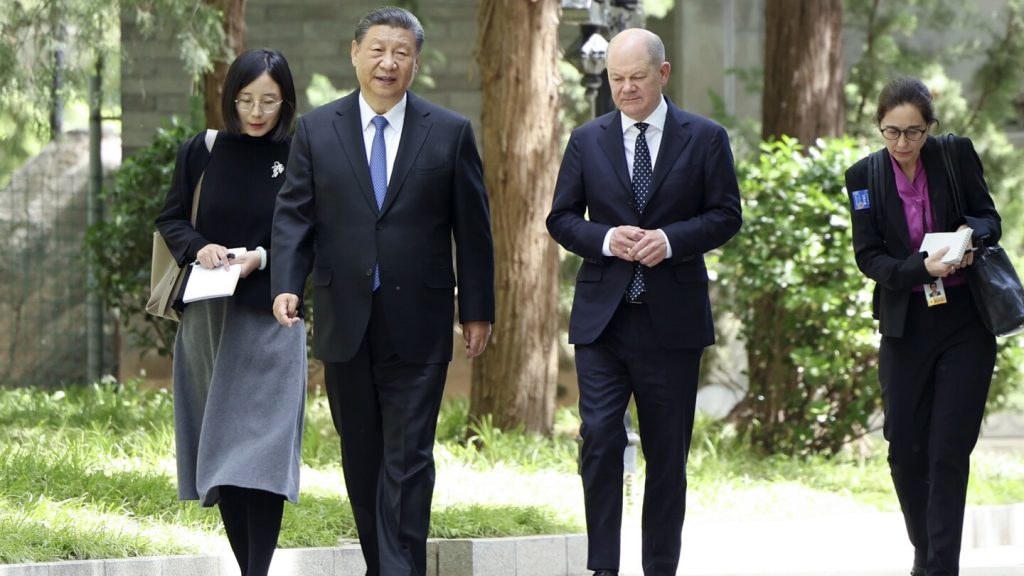European leaders are pushing for changes in China’s stance on the war in Ukraine and the trade imbalance between the two regions. However, German Chancellor Olaf Scholz left China with little progress on these fronts. China’s reluctance to shift its position on Ukraine and its continued exports to the EU highlight the challenges faced in negotiations. Despite this, China is eager for foreign investment, which could potentially benefit European companies.
Both the European Union and the United States have raised concerns about China’s policies promoting green energy, leading to an oversupply of products like electric cars and solar panels. This oversupply has negatively impacted industries in Europe and the U.S., with calls for tariffs on Chinese exports. However, there are fears that tariffs could trigger a trade war and harm European businesses that rely on the Chinese market. The focus is shifting towards opening Chinese markets to European companies and addressing concerns about intellectual property protection.
China’s efforts to promote green energy products have been defended by Chinese leader Xi Jinping, who argues that these products contribute to global efforts to combat climate change. Overcapacity remains a concern for China as well, with calls for better policy coordination to address the issue effectively. The debate on tariffs and market access for foreign companies highlights the importance of equal competition in key technologies where Chinese companies are emerging as innovation leaders.
The conflict in Ukraine remains a fundamental point of division between Europe and China. European leaders have urged China to use its influence to pressure Russian President Vladimir Putin to end the invasion of Ukraine. However, China’s perspective differs from that of Europe and the United States, as it does not blame Russia and believes a peace settlement should address the concerns of all parties involved. Despite concerns about China’s trade with Russia and the sale of military items, China has maintained its stance on maintaining normal economic relations with Russia.
While European leaders continue to push for China’s support on Ukraine, the differences in perspectives make it challenging to achieve meaningful progress in negotiations. The Chinese government has refrained from criticizing Russia and has emphasized the importance of addressing all sides’ concerns for a lasting peace settlement. The lack of alignment on critical issues such as Ukraine underscores the complexities in the relationship between Europe and China, and the challenges of finding common ground in a rapidly changing global landscape.


